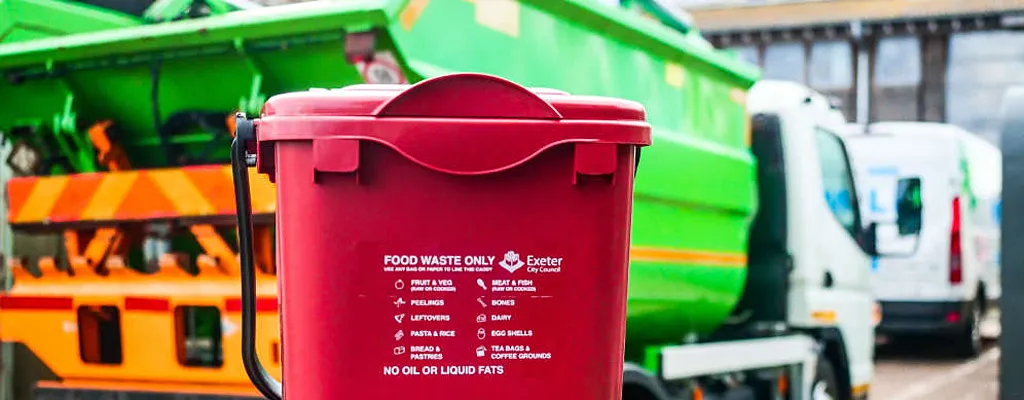Government Commits £295 Million to Support Weekly Food Waste Collections Across England by 2026
25 March — Local councils in England will receive up to £295 million in funding to implement weekly food waste collections by 31 March 2026, Recycling Minister Robbie Moore announced today.
The new funding package is designed to help councils that have not yet established full food waste services. It will cover the cost of specialist collection vehicles and new food waste containers for households.
Currently, the UK wastes more than ten million tonnes of food annually, much of which ends up in landfill. By collecting food waste separately from other household waste, the initiative aims to reduce contamination in recycling streams and divert food scraps to anaerobic digestion facilities, where they can be used to generate green energy and fertiliser, instead of contributing to landfill.
This shift will also help cut more than 18 million tonnes of greenhouse gas emissions linked to food waste.
“Weekly food waste collections are a central plank in delivering a simpler, easier recycling system for all,” said Recycling Minister Robbie Moore. “It will help stop food waste heading to landfill and support our goals of tackling both waste and climate change. We’re backing councils with new funding to ensure the nation can benefit and recycle more.”
Claire Shrewsbury, Director of Insights and Innovation at WRAP, added:
“Weekly food waste collections will give recycling in England a much-needed boost and help reduce the impact of food waste on climate change. Our research shows that when households start separating food waste, they become more aware and want to take action. With food waste costing the average family of four around £1,000 a year, this initiative will not only help reduce waste, but also turn collected food scraps into renewable energy and compost.”
The funding is part of the government’s Simpler Recycling reforms, which aim to standardise recycling across England—ending the current patchwork of differing local rules and confusion over what can and can’t be recycled.
A key component of these reforms is the introduction of mandatory weekly food waste collections for most households, helping to eliminate long-standing hygiene concerns and ensuring that organic waste is not left in bins for weeks.
To allocate funding fairly, Defra developed a detailed formula in collaboration with WRAP and in consultation with local authorities. This model considers factors such as:
- Rural vs urban settings
- Deprivation levels
- Housing types (e.g., flats vs kerbside properties)
- Expected food waste volumes
- Costs of containers and collection vehicles
- Average collection route sizes
- Existing food waste collection coverage
The investment marks a significant step in both streamlining recycling and advancing the UK’s environmental goals.


